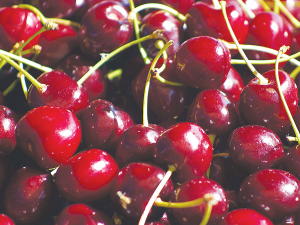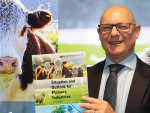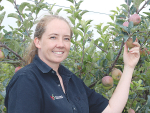New Zealanders ate over $1 billion of potatoes last year, Taiwan is consuming more than $44m worth of New Zealand cherries, and Royal Gala apples are our most popular apple export variety, comprising almost 22% of apple exports.
In 2024 New Zealand's fresh fruit and vegetable exports will reach $4.3 billion, an increase of 8% from 2023.
These are just some of the key insights revealed in this year's Fresh Facts 2024 report produced by United Fresh which represents New Zealand's pan-produce sector.
United Fresh general manager Paula Dudley says Fresh Facts 2024 contains critical data and insights to enable New Zealand's fresh produce industry to thrive.
"As a key player in the fresh produce sector, we hold a collective responsibility to generate measurable, timely, intelligent and accurate data. This data is vital to helping both our industry and its partners plan, foster and grow domestic and export value chains efficiently."
The report contains detailed statistics for different fruit and vegetable sectors. It analyses volume, export markets and value over the past five years and pinpoints emerging trends.
The industry's own reporting on sustainability has been measured for the first time, and concerns raised in Fresh Facts 2024 that not enough organisations understand the United Nation's Sustainable Development Goals (SDGs).
Read More
Last year United Fresh produced guidelines for New Zealand's fresh produce businesses and organisations to start contributing towards the 17 SDGs which have been adopted by the New Zealand government. An analysis of annual reports across the industry shows 84% mention sustainability but only 20% mention SDGs specifically and only 2% have adopted an SDG framework.
"This shows that while awareness of sustainability within the fresh produce industry is significant, there is still a lot of work to be done," Dudley says.
"Fresh Facts 2024 serves as a valuable tool to unlock our industry's full potential. By leveraging reliable information, we can contribute significantly to our nation's economic growth.
"This data-driven approach also strengthens out ability to engage with the government in a professional, transparent and factual manner, ensuring that we are prepared to address both opportunities and challenges."
Dr Hans Maurer, chair of the Technical Advisory Group United Fresh, notes in the report that the last twelve months have not been easy for the fresh produce value chain.
He notes that fruit and vegetable growers along the East Coast of New Zealand's North Island continued with their recovery efforts from Cyclones Hale and Gabrielle.
"Their kūmara growing colleagues in Te Tai Tokerau, our country's Far North, who lost a large part of their annual crops in the devastating floods in late 2022, have turned the corner and managed to harvest a bumper crop of kūmara this year."
Cherry exports, substantially from the Central Otago region of the South Island, continued to grow, with Taiwan, China and Vietnam netting the lion's share.
Maurer says one infrastructure challenge for the industry that has increased in volatility in the last twelve months is the precarious state of Kiwi Rail's Interislander ferry service.
"Our domestic fresh produce industry is dependent on this critical element of our transport infrastructure to supply the South Island with the fruit and vegetables that cannot be grown commercially there, such as citrus, avocados and more.
"And cherry exporters have, in the post-Covid years, had to ship a part of the South Island crop to Auckland by truck and ferry as the number of international flights from Christchurch with capacity to carry our cherries to offshore markets, did not recover at the rate that was needed."


















